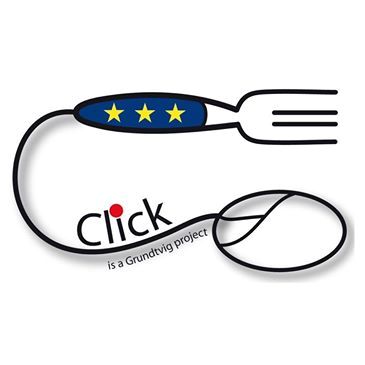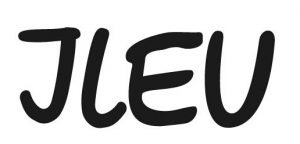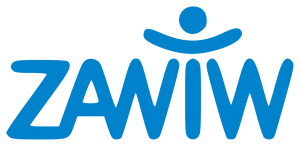Computers, Languages and Intergenerational Communication in the Kitchen (CLICK)

Aim
There are the knowledge fields that are essential for an active European citizen of nowadays: basic computer skills, reading and writing, and foreign languages. More and more things take place on the Internet and the basic computer using is a must for everybody. On the other hand this leads to more and more isolation in our society and generations are drifting apart. Elder people are feeling ashamed for not knowing how to deal with modern communication systems and young people are not used to listen to seniors any more. The CLICK-project invented a way to bring the generations together, to make use of the knowledge of the ancestors as well as the knowledge of the youngsters and to teach them both. Basic computers literacy and English language still remain the most important challenges that older generations need to face not only to keep the track with the development of the modern society but also because the fact that without these skills their participation in the society of equal conditions it is not guaranteed. When seniors face ICT a high number of them think that these technologies belong to new generations, they feel that there is nothing interesting on them and that they use an incomprehensible language. More and more things take place on the internet and the basic computer using together with the foreign language is a must for everybody.Full Description
The golden topic stimulated the participation, motivated the learners and made them the principal actors of the learning process.
Partners have created the shared classes that were put all the above mentioned together and make use of the synergic effect of it. Project increased the ICT and language knowledge with the strong contribution to the intergenerational exchange (mixed age groups in the mixed classes).
This kind of shared classes has enabled putting seniors together with the younger generations and learned from each other in the safe environment of the class. Especially the cooking classes were the ones aimed at intergenerational exchange and communication: older learners searched for the old recipes of their grandparents and they cooked them and taste them together and thus learned from each other. Where it is not possible to have a real kitchen, the cooking classes were virtual: the recipes were introduced by PowerPoint presentation, photo research etc., and of course, everything shared.
Self-confidence is an essential asset for seniors. Positive self-esteem has been linked to factors such as psychological health, mattering to others, and both body image and physical health. The project has provoked participants to focus on identifying strengths, positive assets, resources and using these strengths to cope with life challenges
It is important to help senior generations to keep as active as possible, in order to preserve the heritage and not lose the contact with the past and the culture as it was few generations ago. By the shared classes and the actions, seniors contributed directly to this goal by being directly involved and promote their experiences, ideas and knowledge.
Cooking, dining and food processing is an important part of all cultures and all countries keep some of the ancient ways of food preparation as the cultural treasure. Many of old cooking ingredients have been forgotten or replaced by the modern (but artificial) stuff, especially spices, vegetables, herbs, fruits. In shared classes was promoted the healthy and organic way of cooking, as well as organic ways of gardening and vegetable growing as well as the awareness of biodiversity issues.
This projects has put all the above mentioned together in the unique methodology with the very strong synergic effect.
Project partners:
- ProEduca o.s, Czech Republic – Project coordination
- Bluebook Srl, Italy
- Digital Research & Communication, Italy
- DAFF – Dachverband der burgenländischen Frauen-, Mädchen- und Familienberatungsstellen, Austria
- Volkshochschule Lingen GmbH, Germany
- Narodno chitalishte “Sveti Kliment Ohridiski-1969”, Bulgaria
- Public Open University Zagreb, Croatia
- The Alexandru Ioan Cuza University of Iasi, Romania
- The Faculty of Psychology and Educational Sciences, Romania
- Burdur İl Milli Eğitim Müdürlüğü, Turkey
- Sección de Educación Permanente de Grazalema, Spain
Step by Step Explanation
-
1
Stage/Step 1: Coordination of project activities with regular educational process in Third Age University (coordination of time, staff engagement, implementation of the programme).
-
2
Stage/Step 2: Customizing common program to local (U3A) needs. Development of programs for implementation of shared classes.
-
3
Stage/Step 3: Selection of teachers and trainers
-
4
Step 4: Selection of students
-
5
Step 5: Providing training in each organisation
-
6
Step 6: Sharing experience with other partners
-
7
Step 7: Creating and publishing cookbook
Results
Implemented Methods
Shared classes with golden topic
This training process was based on activities that grow out of one common centre of interest of adult learners (called “golden topic”). The golden topic was “Old cooking recipes”. Around this topic were set three main branches of activities: ICT, literacy and English courses. In this training was also included development of another two basic skills: literacy, with reading and creative writing courses and Basic English communication skills. The methodological approach was based on four pillars: motivation, learning through acting, self-confidence and active participation of the adults all along the learning process.



